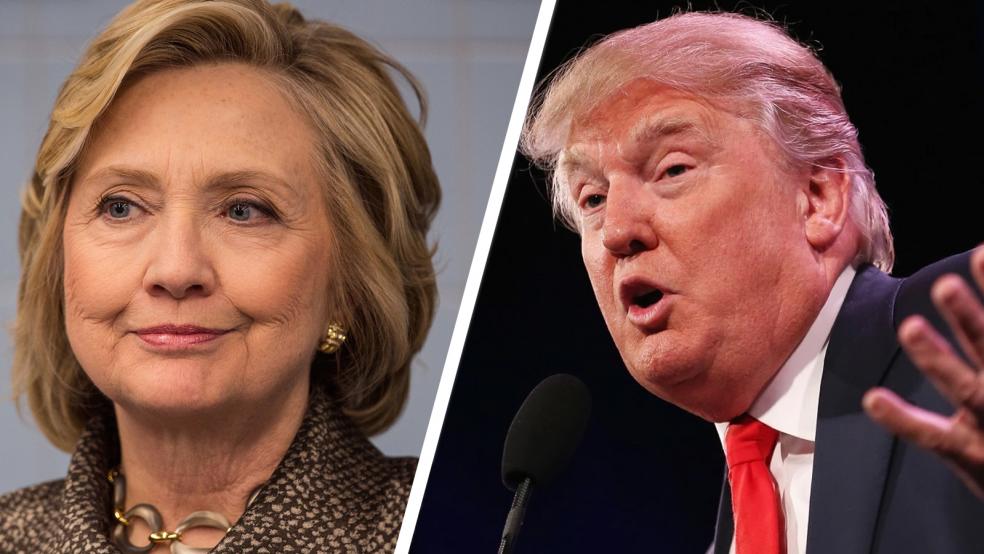Democratic hopes of retaking the Senate in November received a serious shot in the arm Tuesday night as two party favorites cruised to victory.
Establishment candidates in Pennsylvania and Maryland each closed out tougher-than-expected primaries that threatened to leave lasting divisions and distract the party’s efforts to win back the majority in 2016.
Related: Why a Trump Candidacy Threatens the GOP Majority in Congress
In an election cycle dominated by outsider candidates such as Donald Trump and anti-establishment candidates such as Sen. Bernie Sanders of Vermont, contenders with Washington’s official backing came out on top this time.
Democrats must win five seats to wrest back the Senate. Reaching that goal might be made easier if having the support of the party elite becomes an advantage between now and Election Day.
In Pennsylvania, former gubernatorial chief of staff Katie McGinty defeated former representative and ex-U.S. Navy admiral Joe Sestak, 43 percent to 33 percent. She will face incumbent Senator Pat Toomey, who is considered one of the country’s most vulnerable Republicans.
McGinty trailed Sestak, who enjoyed greater name recognition for most of the primary campaign, but a late surge fueled by millions in outside spending and all-out support from Democratic leaders helped her pull ahead. President Obama provided the voice-over for her closing TV and radio ads, and Vice President Biden, famously from Scranton, spent the day before the primary on the campaign trail with McGinty.
Related: Meet the Man Who Spent $12.7 Million on His Run for Congress … and Lost
That heavy-handed involvement could be viewed as bit a payback by the White House: In 2010 Sestak refused to back out of a primary against then-Senator Arlen Spector, a GOP stalwart who switched political parties and became a Democrat.
Sestak won the primary and went on to lose to Toomey in the general election in a year that saw the rise of the hard-right Tea Party movement.
McGinty will need all the help she can get from party elders: A Real Clear Politics average of polls shows Toomey with a roughly 12-point lead, for now.
Meanwhile, in reliably Democratic Maryland, the contest between Rep. Chris Van Hollen and Donna Edwards turned increasing contentious ahead of Election Day as the two clashed over social issues like race and gender.
Both lawmakers are considered progressive, but Van Hollen, a seven-term incumbent, was better able to parlay his current position into support at the polls, winning 53 percent to 39 percent. Barring some kind of unforeseen catastrophe, Van Hollen will keep the Senate seat being vacated by the retiring Barbara Mikulski in the Democratic column.
Related: How Trump and Cruz Could Be Big Money-Makers for House Democrats
Van Hollen’s victory also means that Democrats won’t have to waste money and resources trying to hold on to the seat and can better focus their efforts on flipping seats in other blue-leaning states, including Pennsylvania, New Hampshire and Ohio – matchups they must win if they are to have any hope of taking back the upper chamber next year.
Public opinion polls suggest Democrats might be presented with more down-ballot opportunities if Trump or Texas Sen. Ted Cruz is at the top of the Republican ticket. On Tuesday, a new poll suggested that Arizona, which has gone to the GOP nominee in the last four presidential elections, could become competitive if Trump is the Republican standard-bearer.
That could have major ramifications for incumbent John McCain (R), who is in a statistical dead-heat against Rep. Ann Kirkpatrick (D).





